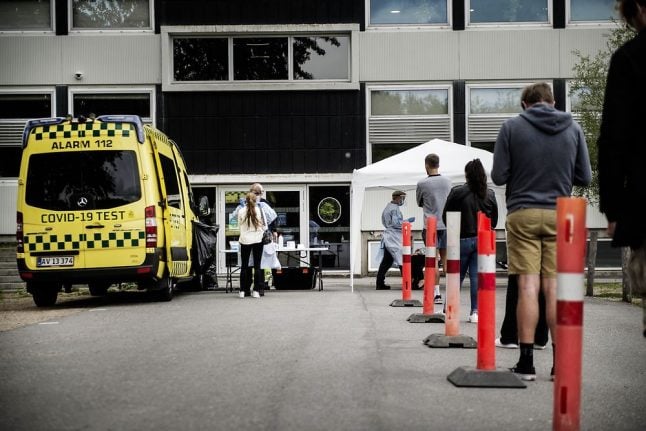The numbers from the State Serum Institute appear a reversal of the improvement in Denmark’s infections figures in late August.
The number of hospitalised people with Covid-19 in Denmark now stands at 17, an increase of 2 since yesterday. Three are in intensive care, which is one less than yesterday. All three are receiving ventilator treatment, an increase of one since Wednesday. No new deaths with Covid-19 were registered.
Previous days this week saw 111 (Wednesday), 99 (Tuesday) and 94 (Monday) cases registered. The figure was under 100 for seven consecutive days during last week.
The figure of 179 from Thursday is the highest daily tally since April 22nd.
Aalborg University senior consultant Henrik Nielsen said Thursday’s number represented “a bit of a jump”.
“This is a number that is clearly higher than we have seen daily during the last couple of weeks. It’s a very sudden change,” Nielsen told Ritzau.
A significant proportion of the new infections took place in Odense Municipality, where 31 cases were registered. That has been connected to an outbreak at the city’s teacher training college UCL, where 1,072 students have now been sent home and switched to online classes.
Odense Municipality currently has an infection rate of 36.7 per 100,000 residents for the last week.
That provides cause for optimism over controlling the increasing in national infection numbers, Nielsen said.
“It is easiest to manage when outbreaks suddenly emerge locally, as we have seen in Ringsted and Aarhus, where it more or less is gone again now,” he said in reference to the two locations of the biggest local outbreaks in August.
“It makes sense to clamp down locally in Odense so the outbreak can be put out again,” he added.
The professor also noted that the situation at hospitals was unchanged by higher infection numbers than early in the summer.
“As the weeks and months pass since we opened society in May, it is becoming more and more striking that there’s a distinction between developments at the hospitals and the number of new infections,” he said.
“This is clearly different to the spring (situation). And it just goes on and on. So it’s a different pandemic now than the one we saw in the spring,” he added.
READ ALSO: Denmark to test people with and without Covid-19 symptoms at the same place



 Please whitelist us to continue reading.
Please whitelist us to continue reading.
Member comments